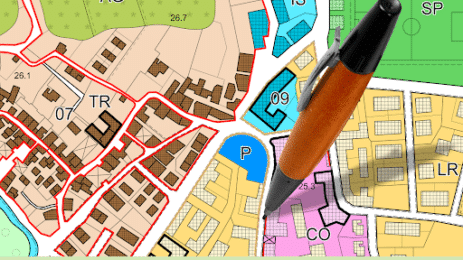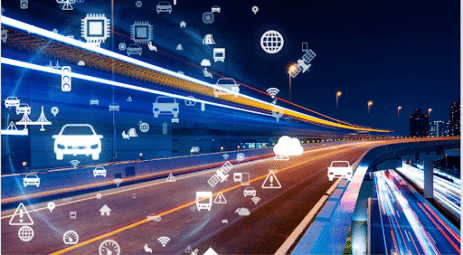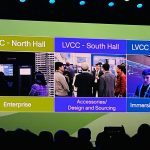As urbanization continues to accelerate, cities worldwide face significant sustainability, livability, and resilience challenges. Traditional urban planning methods often need to address these complex and interconnected issues. Enter Generative AI: a transformative technology that holds the potential to revolutionize urban development by designing smarter, greener, and more adaptive cities.
The Vision: AI-Driven Sustainable Urban Design
Imagine a city where every building, park, and infrastructure element is optimized for environmental sustainability and human well-being. Generative AI can analyze vast datasets, simulate countless scenarios, and generate innovative urban designs that balance the needs of the environment, economy, and society. By integrating AI into the urban planning process, we can create cities that are not only efficient and resilient but also beautiful and harmonious.
Concept: Generative AI in Sustainable Urban Development
1. Optimized Land Use Planning:

- Smart Zoning: Generative AI can analyze geographic, demographic, and environmental data to propose zoning plans that optimize land use. This can help balance residential, commercial, and industrial areas while preserving green spaces and natural habitats.
- Mixed-Use Development: AI can identify opportunities for mixed-use developments that reduce commuting distances, promote walkability, and enhance the vibrancy of urban neighborhoods.
2. Green Architecture and Infrastructure:

- Energy-Efficient Buildings: AI can design buildings with optimized energy efficiency, considering factors such as orientation, materials, and insulation. This can significantly reduce energy consumption and carbon footprints.
- Sustainable Infrastructure: Generative AI can create infrastructure plans that incorporate renewable energy sources, efficient water management systems, and sustainable waste disposal methods.
3. Dynamic Urban Ecosystems:
- Adaptive Green Spaces: AI can design parks and green spaces that adapt to changing environmental conditions, such as varying weather patterns and climate change. These dynamic ecosystems can support biodiversity and provide recreational areas for residents.
- Urban Agriculture: Generative AI can identify suitable locations for urban farms and community gardens, promoting local food production and enhancing food security.
4. Transportation and Mobility:

- Efficient Public Transit: AI can optimize public transportation networks to ensure efficient, accessible, and eco-friendly mobility options. This includes designing routes, schedules, and transit hubs that minimize travel time and emissions.
- Smart Traffic Management: Generative AI can develop traffic management systems that reduce congestion, lower pollution levels, and improve overall transportation efficiency.
Practical Implementation
- Data Integration and Analysis:
- Comprehensive Datasets: Gather and integrate diverse datasets, including geographic information systems (GIS), environmental data, transportation patterns, and demographic statistics. Generative AI algorithms can analyze this data to generate urban design solutions.
- Simulation and Modeling: Use AI to simulate various urban development scenarios, assessing their impact on sustainability, livability, and resilience. These simulations can inform decision-making and guide urban planners.
- Collaborative Urban Planning:
- Stakeholder Engagement: Involve local communities, policymakers, architects, and environmental experts in the planning process. Generative AI can facilitate collaboration by visualizing different design options and their potential outcomes.
- Iterative Design Process: Implement an iterative approach where AI-generated designs are reviewed, refined, and tested. This ensures that the final plans are both innovative and practical.
- Pilot Projects and Real-World Applications:
- Urban Testbeds: Launch pilot projects in specific urban areas to test AI-generated designs and gather real-world data. These testbeds can serve as models for larger-scale implementation.
- Scalable Solutions: Develop scalable solutions that can be adapted to different cities and regions, considering their unique characteristics and challenges.
Broader Implications
- Environmental Impact:
- Carbon Footprint Reduction: Generative AI can contribute to significant reductions in urban carbon footprints by optimizing energy use, transportation systems, and building designs.
- Climate Resilience: AI-generated urban designs can enhance resilience to climate change by incorporating adaptive infrastructure and green spaces.
- Social and Economic Benefits:
- Improved Quality of Life: AI-driven urban planning can create more livable cities with better access to amenities, green spaces, and efficient transportation.
- Economic Efficiency: Optimized urban designs can reduce costs related to energy consumption, transportation, and infrastructure maintenance.
Examples of Generative AI in Urban Development
UrbanSim
UrbanSim is an open-source simulation platform that uses generative AI to model and simulate urban growth and development. It combines data on demographics, land use, transportation, and economics to generate realistic scenarios for urban planning.
Google’s DeepMind for Cooling Data Centers:
Google’s DeepMind, an AI research lab, implemented a generative AI system to optimize the cooling of their data centers. By analyzing vast amounts of data on energy consumption, temperature, and other variables, the AI system autonomously learned to control cooling systems more efficiently. This resulted in significant energy savings and reduced environmental impact.
Singapore’s Virtual Singapore:
Virtual Singapore is a digital twin of the city-state created using generative AI. It combines data from multiple sources, including sensors, satellite imagery, and social media, to create a dynamic model of the city. This allows urban planners and policymakers to simulate and visualize various urban development scenarios, including energy consumption, traffic management, and environmental impacts, to make informed decisions for sustainable development.
Generative Design for Architecture:
In architecture, generative AI is being used to design sustainable and energy-efficient buildings. For example, the Shanghai Tower, one of the tallest buildings in the world, utilized generative design algorithms to optimize its shape for wind resistance and natural lighting. The result is a building that reduces energy consumption and enhances occupant comfort while minimizing its environmental footprint.
The CityBrain in Hangzhou:
Hangzhou, a city in China, implemented a generative AI system called CityBrain to manage traffic congestion and improve transportation efficiency. CityBrain collects data from various sources, including traffic cameras, GPS systems, and public transportation, to optimize traffic signal timings and reroute vehicles in real time. This has resulted in reduced travel times, improved air quality, and enhanced overall mobility within the city.
Ethical Considerations:
- Data Privacy: Ensure that data used in AI algorithms is collected and processed ethically, with a focus on protecting individuals’ privacy.
- Equitable Development: Address potential biases in AI models to ensure that urban planning benefits all residents, including marginalized communities.
Conclusion
Generative AI offers a unique and powerful approach to sustainable urban development. By leveraging AI’s capabilities to analyze, simulate, and optimize, we can design cities that are not only more efficient and resilient but also more enjoyable places to live. As we continue to explore the potential of Generative AI in urban planning, we can look forward to a future where technology and sustainability go hand in hand, building the cities of tomorrow today.
Join us to explore the world of sustainable business offerings and learn how you can make a positive impact. Click here to dive deeper and discover the possibilities with us to explore the world of sustainable business




